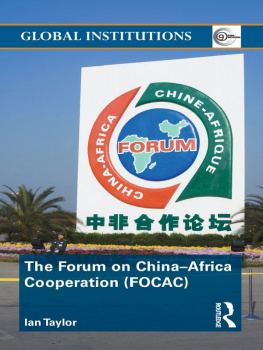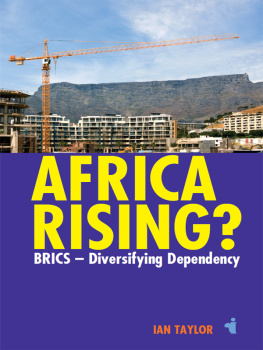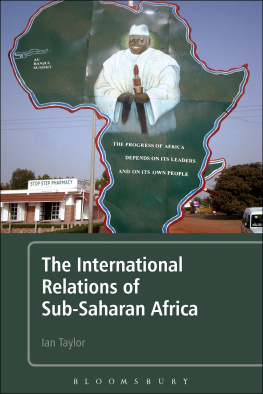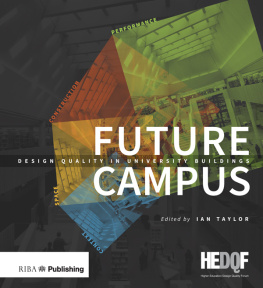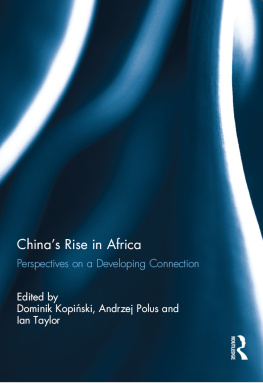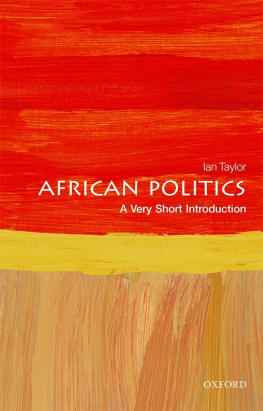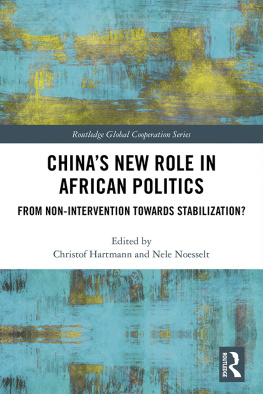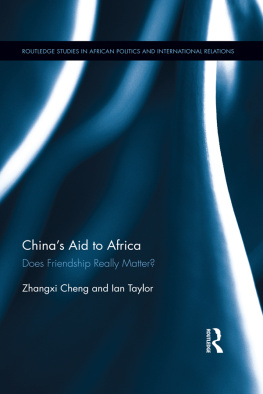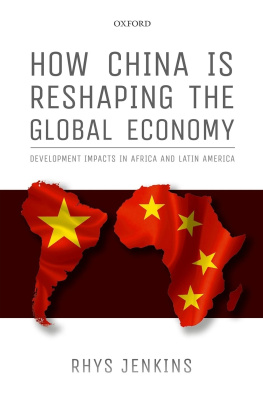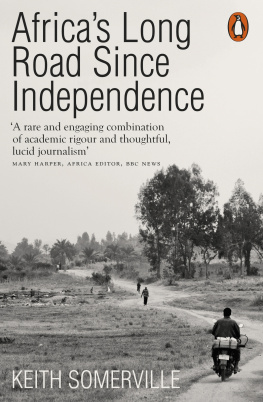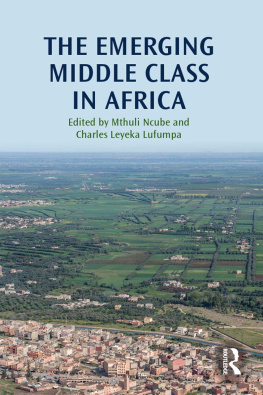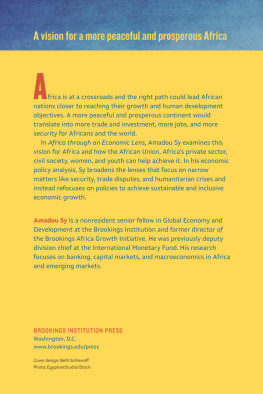The Forum on ChinaAfrica
Cooperation (FOCAC)
The increase in Chinas economic and political involvement in Africa is arguably the most momentous development on the continent since the end of the Cold War. This book seeks to detail the origins, structure, workings and activities of the Forum on ChinaAfrica Cooperation (FOCAC) and its development since 2000.
Mindful of the growing realization that Africa is to play an increasingly important role in global politics, Ian Taylor provides a clear and detailed overview of an organization that has been generally overlooked, despite the exponential rise in the importance of the Chinese presence in Africa.
Topics addressed include:
- the key structures, functions and operations of the FOCAC;
- the importance and development of the triennial summits, including the focus on cultural exchanges and economic cooperation;
- the key criticisms and challenges currently faced by the FOCAC;
- discussion of emerging issuesis it possible to have a win-win
situation between Africa and China, as the FOCAC suggests?
The Forum on ChinaAfrica Cooperation provides a concise introduction to an organizational forum that will be instrumental in the future of Africas relationship with the developed world, and will be of interest to students of African and Chinese politics, International Relations and International Organizations.
Ian Taylor is a professor in the School of International Relations, University of St. Andrews and holds honorary professorships at Renmin University of China, the University of Stellenbosch, South Africa, and the Institute of African Studies at Zhejiang Normal University, China. His recent books include TheInternational Relations of Sub-Saharan Africa (2010); Chinas New Role inAfrica (2009); The United Nations Conference on Trade and Development (2007); and China and Africa: Engagement and Compromise (2006).
Routledge Global Institutions
Edited by Thomas G. Weiss
The CUNY Graduate Center, New York, USA
and Rorden Wilkinson
University of Manchester, UK
About the series
The Global Institutions series is designed to provide readers with comprehensive, accessible, and informative guides to the history, structure, and activities of key international organizations as well as books that deal with topics of key importance in contemporary global governance. Every volume stands on its own as a thorough and insightful treatment of a particular topic, but the series as a whole contributes to a coherent and complementary portrait of the phenomenon of global institutions at the dawn of the millennium.
Books are written by recognized experts, conform to a similar structure, and cover a range of themes and debates common to the series. These areas of shared concern include the general purpose and rationale for organizations, developments over time, membership, structure, decision-making procedures, and key functions. Moreover, current debates are placed in historical perspective alongside informed analysis and critique. Each book also contains an annotated bibliography and guide to electronic information as well as any annexes appropriate to the subject matter at hand.
The volumes currently published are:
48 The Forum on ChinaAfrica Cooperation (FOCAC) (2011)
by Ian Taylor (University of St Andrews)
47 Global Think Tanks, Policy Networks, and Governance (2010)
by James G. McGann (University of Pennsylvania)with Richard Sabatini
46 United Nations Educational, Scientific and Cultural Organization(UNESCO) (2010)
Creating norms in a complex world
by J.P. Singh (Georgetown University)
45 The International Labour Organization (2010)
Coming in from the cold
by Steve Hughes (Newcastle University) and Nigel Haworth(University of Auckland)
44 Global Poverty (2010)
How global governance is failing the poor
by David Hulme (University of Manchester)
43 Global Governance, Poverty, and Inequality (2010)
edited by Jennifer Clapp (University of Waterloo) and RordenWilkinson (University of Manchester)
42 Multilateral Counter-terrorism (2010)
by Peter Romaniuk (John Jay College of Criminal Justice, CUNY)
41 Governing Climate Change (2010)
by Peter Newell (University of East Anglia) and Harriet A. Bulkeley(Durham University)
40 The UN Secretary-General and Secretariat (2010)
Second edition
by Leon Gordenker (Princeton University)
39 Preventive Human Rights Strategies in a World of Acute Threatsand Challenges (2010)
by Bertrand G. Ramcharan (Geneva Graduate Institute ofInternational and Development Studies)
38 African Economic Institutions (2010)
by Kwame Akonor (Seton Hall University)
37 Global Institutions and the HIV/AIDS Epidemic (2010)
Responding to an international crisis
by Franklyn Lisk (University of Warwick)
36 Regional Security (2010)
The capacity of international organizations
by Rodrigo Tavares (United Nations University)
35 The Organisation for Economic Co-operation and Development(2009)
by Richard Woodward (University of Hull)
34 Transnational Organized Crime (2009)
by Frank Madsen (University of Cambridge)
33 The United Nations and Human Rights (2009)
A guide for a new era, second edition
by Julie A. Mertus (American University)
32 The International Organization for Standardization (2009)
Setting standards
by Craig N. Murphy (Wellesley College) and JoAnne Yates(Massachusetts Institute of Technology)
31 Shaping the Humanitarian World (2009)
by Peter Walker (Tufts University) and Daniel G. Maxwell (TuftsUniversity)
30 Global Food and Agricultural Institutions (2009)
by John Shaw
29 Institutions of the Global South (2009)
by Jacqueline Anne Braveboy-Wagner (City College of New York,CUNY)
28 International Judicial Institutions (2009)
The architecture of international justice at home and abroad
by Richard J. Goldstone (Retired Justice of the Constitutional Courtof South Africa) and Adam M. Smith (Harvard University)
27 The International Olympic Committee (2009)
The governance of the olympic system
by Jean-Loup Chappelet (IDHEAP Swiss Graduate School of PublicAdministration) and Brenda Kbler-Mabbott
26 The World Health Organization (2009)
by Kelley Lee (London School of Hygiene and Tropical Medicine)
25 Internet Governance (2009)
The new frontier of global institutions
by John Mathiason (Syracuse University)
24 Institutions of the Asia-Pacific (2009)
ASEAN, APEC, and beyond
by Mark Beeson (University of Birmingham)
23 UNHCR (2008)
The politics and practice of refugee protection into the twenty-first century
by Gil Loescher (University of Oxford), Alexander Betts (University ofOxford), and James Milner (University of Toronto)
22 Contemporary Human Rights Ideas (2008)

